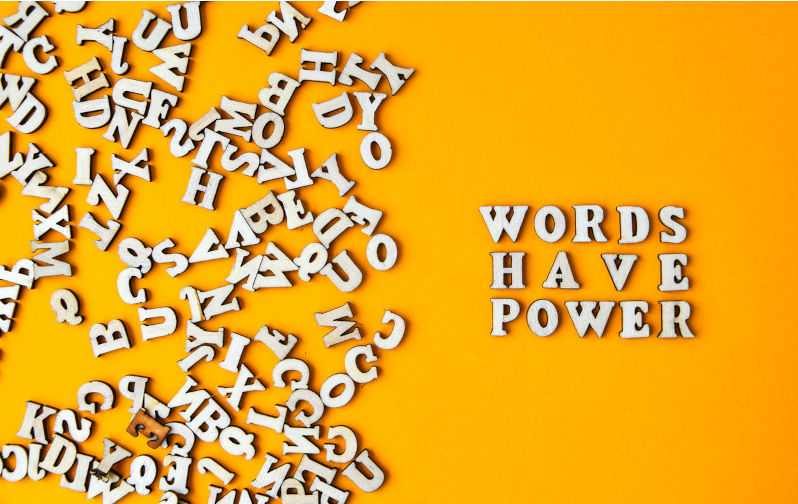Words and phrases used to define, classify, and order our world, combine to tell a good story. That story, told often enough, seems normal. But that story can hide, ignore, and distort, reinforcing unhelpful beliefs and stereotypes. This is what’s happening with stories about skills and occupations.
Every week multiple reports are published by governments, think tanks, academics, researchers, industry groups, and consultancies about labour market needs, workforce issues, and skill demands. These reports use words and phrases to unequally position different skill sets.
Despite numerous reports about the demand for care workers, threats to civil society, and the need for respectful relationships, social skills are repeatedly diminished or ignored by skills language. Restoring these skills to their rightful status is essential for our survival.
The importance of social skills
Social skills refer to a diverse range of human abilities that help us get along with each other and deal with life’s challenges. They encompass communication, interpersonal, and emotional skills. Each of these covers many specific skills, although the boundaries are not always clear-cut. These skills are interrelated, draw on other skills (such as cognitive skills) and are used in diverse contexts to solve problems.
An OECD report points out that social and emotional skills underpin everything people do. These skills ‘are necessary for academic learning, significant predictors of labour market and employment outcomes, strongly related to individual’s health and well-being, and key ingredients of peaceful and prosperous democracies’, yet are unequally distributed across gender and socio-economic background.
Now, more than ever, we need to change how skills language distorts priorities.
Our distorted view of the care economy
The care economy is variously defined in reports. Care services may primarily span the aged, disability, veteran and mental health sectors. They could include education, cover both paid and unpaid work, and extend to essential needs in the face of crises, as we saw during the pandemic. Care work is getting more attention, but not the distortions of how we talk about it.
Care work is disparaged by being called ‘soft skill intensive’. This inaccurate, gendered descriptor ignores the many social, emotional, cognitive, technical and practice skills and knowledge person-centred care requires.
Alison Pennington, author of Gen F’d? How young Australians can reclaim their uncertain futures, points out that the jobs we wrongly associate with ‘low skill’, such as those in caring services and hospitality, have boomed in recent decades. But, she writes, ‘the reality is that the discrepancy between how and what a Google app developer is paid compared to a chef or a disability care worker has little to do with technology. It comes down to how our society values those jobs’. We just don’t choose to value socially useful work.
The UK New Economics Foundation’s report A Bit Rich, approaches the value of work by looking at what some work contributes to society rather than what people are paid. The authors look at three low paid jobs – a hospital cleaner, a recycling plant worker and a childcare worker, and three highly paid – a City banker, an advertising executive and a tax accountant. They found that some of the most highly paid benefit us least, and some of the lowest-paid benefit us most. The point they are making is that there should be a relationship between what we are paid and the value our work generates for society.
We are encouraged to think of care work narrowly. Yet a search for caring jobs on Seek delivers a list that includes sonographer, customer service officer, childcare educator, veterinary nurse, psychologist, cardiac technician, bus driver, and tour guide. Do people working in these jobs consider themselves part of the care economy?
Riane Eisler writes in her book The Real Wealth of Nations that lack of caring is a common denominator underlying our mounting personal, social, and environmental problems. She also points out that without caring and caregiving none of us would be here: ‘There would be no households, no workforce, no economy, nothing.’
Eisler makes a case for adopting a caring economics to inform government policies and business practices. Such an approach supports caring and caregiving on the individual, organisational, social and environmental levels. It spans caring for employees, customers and other business stakeholders, building healthy communities, and the environmental labour needed to preserve a healthy natural environment.
So, are there any jobs that do not involve a caring element? Some jobs may spring to mind. But if caring encompasses the scope Eisler suggests, then we’d be hard-pressed to identify a caring-absent occupation.
Our largely unconscious cultural beliefs about what is and what is not valuable, reinforced by repeated, disparaging skill narratives, downgrades social skills critical to our survival.
We’d do well to act on Eisler’s conclusion: ‘The most critical issue for our future is not technological. It is how fast we can come out of denial about what’s actually happening in our world and what we must do to shift to a way of living and making a living that promotes caring for humans and our natural environment’.
Ann Villiers
Dr Ann Villiers is a career coach and advocate for increasing the accuracy of skills language. Ann is a Life Member of the Career Development Association Australia (CDAA).
